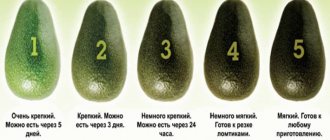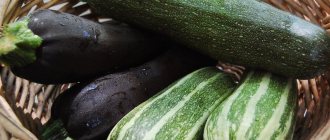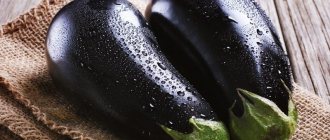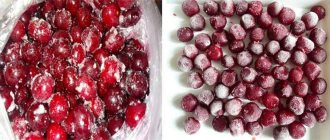Peculiarities
A large percentage of exotic fruits come to us unripe, as this helps preserve the fruits during transportation. Therefore, in the store you can find both already ripe kiwis and completely green and hard ones. If you buy a basket of kiwis packed in a net, you will probably be faced with the fact that the contents will be of different degrees of ripeness - some kiwis can already be eaten, others will have to be put aside for a while.
Many housewives in practice use the ability of kiwi to ripen quickly at home . They specifically buy a few ripe ones that can be eaten on the same day, plus a few more hard ones that will sit at home and eliminate the need to go to the store for new fruits in a few days. This is a good tactic, because kiwis ripened at home are in no way inferior in taste and benefits to the body to fruits that you purchased in a supermarket or market when ripe.
Step-by-step ripening
to leave purchased unripe kiwis
Plastic bags and plastic containers are not suitable for this, since fruits need air access to maintain freshness.
In addition, you should not keep hard kiwis in the refrigerator . After a while, the fruits will begin to dry out and wrinkle, so they run the risk of wilting and spoiling before they are ripe enough to eat.
However, low temperatures will help to briefly delay the ripening process , which is used when buying a large number of fruits. For example, if you purchased a basket with one kilogram of kiwi, the most ripe fruits can be eaten immediately, slightly less ripe ones can be placed in a vase to ripen within 3-5 days.
The remaining ones, completely hard and green, can be divided into two parts - one placed in a paper bag, the other sent to the refrigerator in the compartment for vegetables and fruits. As soon as the fruits that were lying at room temperature become softer, put them in a vase, and put the kiwis stored in the refrigerator into a bag.
This way you will be provided with ripe fruits for a long time after purchase and eliminate the need to do anything with large quantities of kiwi, as they are about to spoil.
In order not to miss the moment when kiwi can already be eaten, a few days after you left the fruit lying in the bag at room temperature, remove one piece and check its ripeness. By cutting the fruit and tasting a slice of the pulp, you will immediately determine whether it is edible.
If the kiwi fruit is still sour and its texture is hard, the other fruits should be left in the bag for a few more days . If the fruit has already become quite sweet and softened, take out all the kiwis and compare them to the touch with the already cut ones. If all the fruits have the same consistency, you can safely eat them and add them to different dishes.
To speed up ripening, you can hold kiwis with fruits that can release ethylene.
This gas, also called plant ripening hormone , is known for its specific effect on the condition of vegetables and fruits. Under its influence, the fruits quickly become soft and ripe.
Different fruits produce different amounts of ethylene. Most of this gas is produced by ripe bananas, pears, apricots, plums, peaches and apples. If you place unripe kiwis next to such fruits, this will make them fragrant and juicy in 1-2 days. It turns out that if you put a large banana or several apricots in a paper bag together with kiwi, after just a few days you can enjoy the taste of ripe fruit.
Long-term storage of kiwi
Everything is clear with storage for a short period of time. Now it remains to deal with the long term. I’ll say right away: there’s nothing scary here, so there’s no need to be afraid. Everything is also simple.
Store in the freezer
For long-term storage I like to use the freezer. But here you have to make an effort:
- First, rinse the fruits well under running water. This is the first difference from other storage methods.
- Then remove the skin. Cut the pulp into rings, and then half rings.
- Take a baking sheet. If you are freezing kiwi in large quantities, prepare 2-3 pieces at once. Line them with parchment paper.
- Distribute the berry pieces over the surface so that they do not touch each other.
- Place in the freezer for 1-1.5 hours. Then take it out and package it in sealed bags and finally put it in the freezer.
Author's note
Natalia Papanova
Blog author
You don’t have to throw away the kiwi peel, but you can also eat it. It also contains useful vitamins and microelements.
Did you find out how to store kiwi in the freezer? Replenish your knowledge, read how to preserve watermelon for the winter at home, maybe you’ll also want to diversify your preparations with other healthy delicacies.
After defrosting, the fruit does not lose its beneficial properties and taste.
Canning with sugar
Another storage option is to preserve the berries with sugar. The end result is something similar to jam. This is one of our family's favorite recipes. We eat the preparation first (especially children).
To prepare you will need:
- kiwi - 800 g;
- granulated sugar - 350-400 g.
Cooking method:
- Wash the fruits, peel and cut into medium-sized pieces. The form is arbitrary, it doesn’t matter here.
- Place in a bowl and blend with an immersion blender until smooth.
- Add sugar there. Stir until all the crystals are completely dissolved.
- Distribute the workpiece into sterilized jars and close the lid.
Place in the refrigerator immediately after. A fresh portion of vitamins for winter is ready. It can be stored in this condition for up to a year. Calorie content per 100 g - 136 Kcal.
If you don’t want to waste your energy on such preparations, then find out how to care for tangerines at home in order to reap a bountiful harvest from them. Surprise your guests with homemade citruses!
How to dry kiwi
When it comes to drying, there are two options:
- oven;
- electric dryer
In the first case, wash the fruits, peel them and cut them into 5 mm circles. Then place them on a baking sheet and place them in a shady place. 3-5 days in the fresh air will be enough. Then preheat the oven to 50 degrees, place a baking sheet with pieces there and dry for 8 hours. Open the oven lid slightly.
Author's note
Natalia Papanova
Blog author
Do not dry the berries in the sun. Due to direct sunlight, it will lose valuable vitamin A.
For an electric dryer everything is simpler. Cut the kiwi into the same size and place in a special tray. Set it to medium mode (this is a temperature of 55 degrees) and leave it in this state for 12 hours.
Do you store dried kiwi?
Not really
To prevent the kiwi from losing its green color during the drying process, you can dip the slices in sugar syrup for 3-4 minutes. Dilute at the rate of 1 part sugar to 2 parts water. Already dried specimens are placed in a plastic container or fabric bag and stored in a dry, dark place.
The shelf life in this condition is one year or more. Calorie content per 100 g - 240 Kcal.
Dried kiwi lasts the longest
Recommendations for choosing ripe kiwis
To buy ripe fruits in the store, take them in your hand and lightly press on the skin. If the kiwis are already ripe, they will be a little soft. If you have the opportunity, feel and inspect each fruit individually.
By pressing on it with your thumb, you will feel that inside such a fruit is dense , but already pliable. These are the kiwis that are worth buying. If the structure is loose and a clear dent remains on the surface after pressing with your finger, then you have an overripe fruit.
When choosing kiwi, give preference to specimens whose skin is not damaged.
A high-quality fruit has an attractive and neat appearance, its skin is not wrinkled, and its color is uniform . Fruits with cracks or dark spots should be set aside.
If you notice softened or darkened areas already at home, you should not leave such kiwis to ripen. Such fruits spoil quite quickly, so they should be used immediately, for example, to make a pie filling, add to yogurt or make jam.
In addition, ripe kiwis that you do not plan to eat anytime soon can be frozen . In the freezer, such fruits can be stored for several months, either cut into cubes or slices, or whole. From such a preparation you can make delicious smoothies or other healthy dishes.
The following video demonstrates an experiment in ripening kiwi at home.
Useful tips
The following recommendations will protect you from consuming low-quality products.
- Do not store chopped and peeled fruits in the refrigerator for more than a day. Not only does their flesh become weathered and oxidized, but in addition, active proliferation of bacteria begins on their surface.
- The softness of the fruit may indicate that the process of rotting has begun. Before eating such berries, be sure to check that they have not spoiled inside.
- Do not under any circumstances eat kiwi that has a whitish coating on it. Otherwise, there is a risk of poisoning or stomach upset.
Remember: in order not to wonder where and how much you can store kiwi at home, try to purchase the fruit in small quantities and eat it within 5-7 days. In this case, the fruits will be perfectly preserved even at room temperature.
What fruits are suitable for storage?
To preserve exotic fruits for as long as possible, the following recommendations will be useful.
- It is necessary to select unripe berries or those with a moderate degree of softness. Ripe ones are best eaten immediately.
- Those fruits that need to be preserved longer should not be wet, soft, wrinkled, cracked or dented. Cuts, scratches and other damage are clearly visible on the peel, even despite its “fluffiness”.
- You cannot wash kiwis before storing them. They will absorb moisture and begin to rot. Washing is recommended only before use.
- The container must provide air access to the product. These can be open containers, paper or plastic bags with air holes. Without ventilation, kiwis will deteriorate, becoming covered with a thin layer of rot.
- The recommended humidity level at the storage location is 90-95%.
- Next to kiwi, which absorbs “foreign” aromas well, there should not be foods with a smell, for example, fish, smoked meats.
- Next to them there should also be no products that emit ethylene (bananas, apples), which promotes rapid ripening.
Supplies should be checked 1-2 times a week, spoiled ones should be removed immediately. Another important point: the longer kiwi is stored, the softer it becomes. As soon as softness appears, it is better to immediately eat it, after making sure that in this case this is the degree of ripening, and not the beginning of rotting.
How long and at what temperature should you store kiwi?
The storage temperature of kiwi should not be below 0. When the right conditions are created, these fruits can remain fresh for three months. Sometimes this period can be extended if the kiwi variety initially has good long-term storage characteristics.
At temperatures from +10 to +15 degrees, kiwis are stored for 4-6 weeks. The main nuance in this case is the elimination of differences and changes in temperature. If fruits are first stored in the refrigerator, then at room temperature and again in the refrigerator, they will spoil several weeks earlier than the specified date.
If the kiwi is ripe and its surface has already become soft, then it can be stored in the refrigerator for no more than two weeks . It is not recommended to store such fruits at room temperature. They will spoil in just 4-5 days.
At room temperature, kiwis can stay fresh for a maximum of 6 days. During storage, it is necessary to avoid direct sunlight on the fruits and choose a dark, well-ventilated place. The fruit must be open. You cannot place it in polyethylene at room temperature (the fruit will spoil within 1-2 days).
Kiwi can be stored frozen for several months. It is not recommended to freeze fruits whole. First, they are cut into small cubes or rings, and the skin is removed. The workpiece is placed in the freezer in containers or in plastic wrap.
Features of storing kiwi at home
Healthy and tasty kiwi with green flesh belongs to plants from the genus Actinidia. Botanists classify it as a berry, but consumers call it a fruit. They rarely buy in excess; not everyone knows how to store kiwi. If there are a large number, they can be kept at home for several days or months, depending on the degree of maturity. Kiwi is ground with sugar, dried, prepared into sweet dishes, salads, and marinades.
The berries retain their properties well, do not spoil for a long time and are pleasant to the taste. They are useful, one piece contains the norm of ascorbic acid per day. Kiwi also contains other vitamins, micro- and macroelements, and flavonoids. Recommended for use to prevent colds.
How to choose and store kiwi correctly
Kiwi is a tasty, juicy and very healthy fruit. From a biological point of view, kiwi is a berry and belongs to plants of the genus Actinidia. These tree-like vines originate from China, for which their fruits are sometimes called Chinese gooseberries. In this article we will talk about how and where to store kiwi in order to preserve the freshness and rich taste of such an unusual berry for a long time.
By the way, kiwi contains a very large amount of vitamin C (more than an orange) and a lot of potassium. Kiwi is recommended for use in some forms of hypertension and iodine deficiency. This berry, rich in vitamins and microelements, reduces the risk of cardiovascular diseases, reduces the risk of blood clots, and is also capable of burning fat.
How to choose a delicious kiwi
When choosing, you should know: unripe kiwis can be stored for several days. If you want to eat them right now, you should follow these rules:
- choose a slightly soft, whole berry; there should be no dents left on the skin after pressing;
- the fruit is too soft - already overripe; with dark spots - affected by fungus;
- a droplet appears near the stalk when pressed - the storage conditions were violated;
- a fluffy gray coating on the fruit indicates the presence of rot.
It is recommended to pay attention to the peel, it should be:
- uniform brown color;
- covered with small fibers;
- no wrinkles, dents, stains, sticky residue.
Kiwi has a light citrus-like aroma. The presence of a wine smell indicates spoilage of the product. It is recommended to shake the container where the fruits are packaged to see damaged specimens.
An unripe berry has a greenish tint, has less fibers, and is hard to the touch. Exotic fruits ripen from late autumn to spring; it is recommended to buy them during this period.
Optimal conditions
For long-term storage, specimens with intact peels and without defects or damage should be selected. You cannot wash them, otherwise the product will quickly deteriorate. It is not recommended to store fruits in hermetically sealed bags; with this storage method there is no access to air. The best option is to store them in an open cardboard box or basket, at a short distance from each other.
The optimal storage temperature for kiwi is above 0°C; in the refrigerator they can remain fresh for 1-1.5 months. At room temperature, they last for a week or more, depending on the degree of ripening. Kiwis are stored with normal air access. Small holes are first made in the container where the berries are located. Compliance with these conditions will increase the period to 3 months.
The product reacts negatively to temperature changes. If you keep it in the cold and then put it in heat, it will spoil faster.
Kiwis, like mangoes, should not be kept in a tightly closed bag without air access.
The fruit perfectly absorbs odors emanating from nearby products; it must be placed separately.
How long can kiwi be stored?
You can store kiwi for a long time in the form of preparations by changing its properties. Let's look at a few recipes.
Freezing
- Wash, remove the skin and cut the fruit into slices;
- Place on a cutting board or baking sheet in the freezer;
- Place frozen pieces into bags or containers and store in the freezer for 6 months.
Drying
Dried kiwi pieces are stored in fabric bags, paper bags, jars or plastic containers, placed in a dry and well-ventilated area. Before drying, wash the fruits, remove the skin and cut the fruits into slices. Place the pieces on a baking sheet and leave to dry for 1 day in a dark and ventilated place at room temperature.
- In the oven, the fruits will dry out in 3-4 hours under the influence of high temperature +50…+55 ºC,
- In an electric dryer, the fruits will dry in 6-8 hours at a temperature of +55 ºC.
How to properly store kiwi at home
Exotic fruits can be stored at home in the kitchen, in a cool room, or in the refrigerator. When frozen, they are stored longer, but the content of ascorbic acid and other useful elements does not decrease.
Fridge
Ripe fruits will last 7-17 days in the refrigerator. Fruits with thick skin are stored for 2-3 weeks so that they ripen completely. Place them in a special compartment for vegetables or on the top shelf.
The second option is to wrap the fruits in cling paper or put them in a paper bag. Every 3 days you need to inspect the berries and immediately remove spoiled ones.
Dried fruits and kiwi jam
Freezer
Not all housewives know that kiwi can be frozen. This is how they retain their beneficial properties. It is recommended to store kiwi in the freezer. To do this, they must first be prepared:
- clean first;
- then cut into circles or cubes measuring 10 mm;
- arrange the pieces on cling film, leaving space between them;
- cover with a layer of film on top;
- place in a chamber where the temperature is -12…-18°C.
After a day, transfer the berries to a container or use freezer bags. It is recommended to store berries in the freezer for 3-4 months. After defrosting, they retain their benefits.
Kiwi with sugar
The shelf life of kiwis ground with granulated sugar is a whole year. For preparation you will need ripe fruits and sugar. Glass containers for dessert must first be sterilized.
Grind the washed and peeled fruits using a blender to a puree. Then add sugar and mix thoroughly until the sand dissolves. After half an hour, pour the resulting mixture into jars and refrigerate. The proportions of berries and sugar are 2:1.
How to preserve kiwi for a short period of time
You need to know how to store kiwis correctly in an apartment. But I will please you: if you need to preserve the fruits for a short period of time, then much effort will not be required. And if you follow all the rules and conditions, the fruits can be preserved for up to 5 weeks or more.
Cold storage
The simple way I use is to put kiwi fruits in the refrigerator. But it’s not enough to just put it down. This way you won’t save the berries. But if you do a couple of preparations, everything will work out. I do it like this:
- I'm sorting through the fruits. I put aside those that cause suspicion. The family eats them right away.
- I'm preparing the container. A plastic container with ventilation holes is suitable for storing in the refrigerator. I wash it a couple of times first with detergent (or soda solution) and dry it. There is no such container - no problem. Take a regular bag and make holes in it. Or prepare paper in which to wrap the fruits (even newspapers will do).
- I distribute the kiwi into containers and put them in the refrigerator so that the berries are away from foreign odors. I usually put it in the vegetable compartment.
Ripe specimens will keep for approximately 2-3 weeks. And if you lay unripe ones, they will last up to 5-6 weeks. Browse and sort through kiwis periodically. An infection can appear and begin to spread even under perfectly organized conditions.
If you don't want to take up space in your refrigerator, then grow fruit trees at home to gradually harvest them. I told you how to grow pomegranate at home, try it, it’s not that difficult!
To learn how to organize storage space in a small kitchen, watch the following video:
At room temperature
But here, unfortunately, it’s impossible to say the exact shelf life. Ultimately, everything will depend on the type of berry and its condition.
But in order to increase the duration in any case, you can do the following:
- If the kiwis are already ripe, put them in a shaded place. They will remain usable for 3-4 days.
- Provide the room with good ventilation. Also make sure that the humidity does not rise above 80%. Otherwise, pathogenic bacteria will quickly begin to develop.
- Monitor the temperature to avoid sudden changes. Kiwi reacts very sharply to this and can immediately spoil.
- If your fruits are unripe, proceed differently: place them first in the sun. As soon as they reach the desired state, put them in a dark place.
Author's note
Natalia Papanova
Blog author
Before eating the berry, pay attention to the condition of the pulp. There may be no unpleasant smell, but this does not mean that the fruit is good. But if the flesh has acquired an unnatural color, then that’s it, it’s time to throw away the fruit.
If you don’t want to bother with storing kiwi, plant it and then store fresh berries for the winter. I told you how easy it is to grow strawberries at home. It is no less tasty and healthy!
No matter what you do, you won’t be able to preserve fruits for long in room conditions.
Storing cut kiwi
But cut kiwi, even if you really want it, cannot be preserved for long. The rule here is: more than a day, it won’t last even in the refrigerator.
. Because on the second day the pulp already begins to oxidize, weather, and besides, bacteria begin to actively multiply on its surface. Consumption may cause stomach upset. But such problems are not necessary at all. Well, for the fetus to survive at least 24 hours, follow these steps:
- Place the berries cut side down on a plate.
- Wrap it in cling film.
- Place in the refrigerator away from foreign odors.
It’s better, of course, to rely on your strength and eat the whole kiwi so that you don’t have to store the cut parts. After all, even after being in the refrigerator for a short time, the specimens manage to become saturated with the smell of all the other components.
Storing kiwi of different degrees of maturity
Fruits may be too ripe or moderately ripe. Too soft ones are recommended for immediate consumption.
Ripe fruits
Buyers are often looking for an answer to the question of how to preserve kiwi for several days if the fruit is fully ripe.
Step-by-step storage instructions:
- Room. Dark and dry, well ventilated, without drafts.
- Temperature. It is required to observe the temperature regime: +18…+20°С.
- Humidity. Should be at 60%.
- Duration. Ripe ones remain usable for no more than 3-4 days.
Ripe fruits can be stored for a week in the refrigerator in the fruit drawer. They will keep for 2 weeks in a plastic container.
Unripe fruits
Unripe fruits require different storage conditions. If the seeds of the fruit are green or yellow when cut, it means it is not yet ripe. When fully ripe they are black. In order for kiwis to ripen faster, it is recommended to store them at room temperature. This method is also suitable for storing bananas.
For quick ripening, it is recommended to adhere to these rules and avoid mistakes.
Right:
- store at a temperature of +12...+18°C for 4-5 weeks;
- wrap individually in paper napkins;
- turn regularly;
- ripen in the presence of apples, pears, bananas.
Wrong:
- leave in a cool place;
- keep near a heat source;
- allow penetration of sunlight;
- subject to sudden temperature changes.
Storing ripe fruits
The main sign of kiwi ripeness is the softness of the fruit. This fruit needs to be peeled and eaten with pleasure.
Ripe fruits do not have to be refrigerated. They feel great at room temperature. Kiwi is best placed in a fruit bowl, basket or on a plate. Such dishes do not obstruct air access. Kiwis must “breathe”, otherwise they will begin to dry out or rot.
The container with fruit must be placed away from sunlight. Direct contact with them negatively affects kiwi and contributes to fruit spoilage.
If all the described conditions are met, ripe kiwis remain in excellent condition for up to five days .
Conditions and periods for storing kiwi at home
Against the backdrop of a wide variety of exotic fruits, kiwi has become familiar. These fruits are a real vitamin bomb. In terms of ascorbic acid content, they surpass even lemons. For comparison, 100 g of lemon contains 53 mg of vitamin C, while kiwi for the same weight has 92.7 mg. In addition, this fruit is rich in vitamins E and B, iodine, phosphorus, potassium and manganese.
To get the maximum benefit for the body and preserve the taste, you need to be able to not only use this product correctly, but also store it. Therefore, we will consider how long kiwi can be stored at home, how best to store it and what to do if it is not ripe.
What you need to know about storage
- It is necessary to ensure that kiwi is stored under conditions of normal air access. To do this, you must first make small holes in the container where the fruits are located.
- Air humidity during storage should be at the level of 90 - 95%.
- Softness is an indicator of both complete ripeness and decay. Before eating, you need to make sure that the kiwi has not rotted, but is fully ripe.
How long fruits will be stored may depend on the variety, initial condition, initial ripeness, as well as temperature and humidity level. If you follow the above recommendations, you can store kiwi at home for a long time.
How to properly store kiwi at home
Storage options vary depending on the purpose: in some cases it is important to extend the shelf life of the fruit, in others it is important to speed up the ripening process.
Note. Kiwi retains all its beneficial properties regardless of whether it is fresh, dried or in the form of jam.
Storing ripe fruits
Ripe kiwis are soft, without dents or visible damage.
What you need to provide at home:
- room temperature - from +18°C to +20°C;
- period - no more than 4 days;
- do not leave the fruit in a tightly closed plastic bag - this will reduce the shelf life of kiwi to 1-2 days;
- exclude direct sunlight, place it in a dark, ventilated place;
- wash immediately before use;
- Ripe kiwi absorbs foreign odors well, so avoid proximity to strong-smelling foods, such as smoked meats.
Fridge
Storage in the refrigerator is suitable if the fruit is already ripe and its consumption must be postponed for some time:
- store in the lower section of the refrigerator at a temperature from +1°C to +8°C in a special compartment for vegetables and fruits;
- storage duration - no more than a week;
- Extend the shelf life to two weeks by placing the kiwi in a plastic container, which will reduce moisture loss.
Freezer
The freezer is an excellent option for long-term storage, especially for those who purchase food for the holiday table in advance.
Deep freezing, for example, will answer the question of how to preserve kiwi until the New Year at home:
- store it in a tightly closed container or plastic wrap at a temperature of –18°C;
- Shelf life: 3-4 months;
- Before deep freezing, properly prepare the fruit - wash it well, peel it, cut it into cubes or circles.
Kiwi with sugar
The fruit is popular not only in fresh and frozen forms. This exotic fruit makes excellent preparations for the winter.
For example, for the simplest recipe you will need only 2 ingredients:
- kiwi - 400 g;
- granulated sugar - 200 g.
Prepare containers for the future dessert in advance - glass jars with tight-fitting lids. Pour boiling water over them from the inside. This will increase the shelf life of the finished product.
Then proceed to preparation:
- Grind the washed and peeled fruits in a blender or using a mixer until pureed.
- Add sugar to the mixture and mix everything well, trying to dissolve the sugar granules as much as possible.
- Let the mixture sit for about half an hour.
- Divide the finished mixture into jars and place in the refrigerator.
The shelf life is about a year.
Shelf life of kiwi according to GOST
GOST 31823-2012 Kiwifruit sold in retail trade.
The shelf life of kiwi is set by the manufacturer depending on storage conditions. This is explained by the fact that exporting manufacturers use a large number of different containers: wooden boxes with 50 kg of fruits, single-piece polymer packages for 4-10 fruits, etc.
Other provisions from GOST:
- Packaged kiwi fruits are transported by all types of transport in clean, dry, odor-free, pest-free vehicles in accordance with the rules for the transportation of perishable goods in force for specific types of transport.
- When transporting kiwi in refrigerated cars and refrigerated trucks, the temperature regime should be 0 °C - 1 °C.
- It is allowed to transport kiwi in transport packages in accordance with GOST 24597 and GOST 26663. Fastening means and packaging methods are in accordance with GOST 21650.
- Kiwi fruits are stored in clean, dry, pest-free, odorless, refrigerated warehouses or refrigerators at a temperature of 0 °C to 1 °C and a relative humidity of 90%-95%.
In modern industrial fruit and vegetable storage facilities, the use of RGS makes it possible to extend the shelf life to 9 months. In addition to CGS generators, the chambers are equipped with special equipment that absorbs ethylene. This equipment is becoming increasingly common in vehicles.











